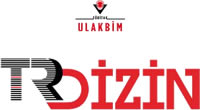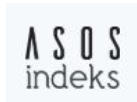Libya Matematik Ders Kitaplarının Analizi: İlköğretim Yedinci Sınıftan Dokuzuncu Sınıfa (Analysis of Libya Mathematics Course Books: Seventh Grade to Nine Grade)
DOI:
https://doi.org/10.15659/ankad.v4i3.114Anahtar Kelimeler:
Matematik- Ders Kitabı- Libyada MatematikÖzet
Bu araştırma, Libya’da 7., 8. ve 9. Sınıfta okutulan matematik ders kitapları ile mevcut ders müfredatı arasındaki ilişkiyi ortaya koymayı amaç edinmektedir. Bu bağlamda bu çalışma, Libya’da kullanılmakta olan ortaokul matematik ders kitaplarında matematiksel konuların nasıl kavramsallaştırılıp ele alındığına dair ayrıntılı bir resim sağlamak için matematik konularının içeriklerini, sunumunu ve yer verilen soruları analiz etmeyi amaçlamıştır. Çalışma sonucunda matematik ders kitaplarının içeriği, ele alınan konular, konuların sıralanışı ve konuların kitaptaki oranı (sayfa sayısı) ve matematik programında ayrılan ders süresi ile ilişkisi ortaya konulmuştur. Çalışma sonucunda elde edilen bulgulardan ders kitabının program ile uyumlu olduğu sonucuna varılmıştır.
Referanslar
Aineamani, B. (2010). Reasoning and communicating mathematically. In M. de villers (Ed.), Proceedings of 18th meeting of SAARMSTE Vol 1, University of Kwazulu-Natal: South Africa, pp. 171-183.
Aineamani, B. & Naicker, S. (2014). Mathematics text book analysis: A guide to choosing the appropriate mathematics textbook. The Association for Mathematics Education of SouthAfrica-AMESA.
Dane, A., Doğar, Ç. & Balkı, N. (2004). İlköğretim 7. sınıf matematik ders kitaplarının değerlendirmesi. Erzincan Eğitim Fakültesi Dergisi, 6(2), 1-18.
Dowling, P. (1996). A Sociological analysis of school mathematics texts. Educational Studies in Mathematics, 31(4), 389-485
Duman, T., Karakaya, N., Çakmak, M., Eray, M. & Özkan, M. (2001). Konu alanı ders kitabı incelemesi. L. Küçükahmet (Editör), s.10-40. Ankara: Nobel Yayın Dağıtım.
Göze, N. (1999). Matematik zor değildir. Çağdaş Eğitim Dergisi, 256, 33-37.
Kilpatrick, J., Swafford, J. & Findell, B. (Eds). (2001). Adding it up: helping children learn mathematics. Washington: National Academy Press. Pp. 115-155.
Kolaç, E. (2003). İlköğretim dördüncü sınıf Türkçe ders kitaplarının öğretmen görüşlerine dayalı olarak değerlendirilmesi. Uludağ Üniversitesi Eğitim Fakültesi Dergisi, 17(1), 105-137.
Marton, F., Runesson, U. & Tsui, B.M. (2004). The space of learning. In F. Marton & A. B. Tsui (Eds.), Classroom discourse and the space of learning (pp. 3 – 40), Mahwah, NJ: Lawrence Erlbaum.
McKenzie, F. (2001). Developing children's communication skills to aid mathematical understanding, ACE papers (Student Edition), 11,7-16.
https://researchspace.auckland.ac.nz/bitstream/handle/2292/25104/ACE_Paper_1_Issue_11.pdf?sequence=1
Morgan, C., (2004), Writing mathematically: the discourse of investigation, London: Falmer Press
Mukucha, J. (2012). The mathematics definition discourse: teachers' practices in multilingual classrooms (Doctoral dissertation) M. Sc. University of the Witwatersrand, Faculty of Science, School of Science Education, Johannesburg, Güney Afrika. Cumhuriyeti
Muller, M. & Maher, C. (2009). Learning to reason in an informal math after-school program. Mathematics Education Research Journal, 21 (3), 109-119.
NAEP (2007) National assessment of educational progress at grades 4 and 8 https://nces.ed.gov/nationsreportcard/pdf/main2007/2007494.pdf
Ozer, E. & Sezer, R. (2014). A comparative analysis of questions in American, Singaporean, and Turkish mathematics textbooks based on the topics covered in 8th grade in Turkey. Educational Sciences: Theory and Practice, 14(1), 411-421.
Sadoski, M. (2001). Resolving the effects of concreteness on ınterest, comprehension, and learning important ideas from text. Educational Psychology Review, 13 (3), 263-281.
Şirin, O. & İncikabı, L. (2019). Süreli çocuk yayınlarındaki matematik problemlerinin incelenmesi. Eğitimde Kuram ve Uygulama, 15(3), 186-203.
Vygotsky, L. (1978). Mind in society: The development of higher psychological processes.
Cambridge, MA: Harvard University Press.
Yıldırım, A. & Şimşek, H. (2011). Sosyal bilimlerde araştırma yöntemleri. Ankara: Seçkin Yayınları.
Zhu, Y. & Fan, L. (2006). Focus on the representation of problem types in intended curriculum: A comparison of selected mathematics textbooks from Mainland China and the United States. International Journal of Science and Mathematics Education, 4(4), 609-626.
Yayınlanmış
Nasıl Atıf Yapılır
Sayı
Bölüm
Lisans
Telif Hakkı (c) 2024 Anadolu Kültürel Araştırmalar Dergisi (ANKAD)

Bu çalışma Creative Commons Attribution-NonCommercial 4.0 International License ile lisanslanmıştır.













